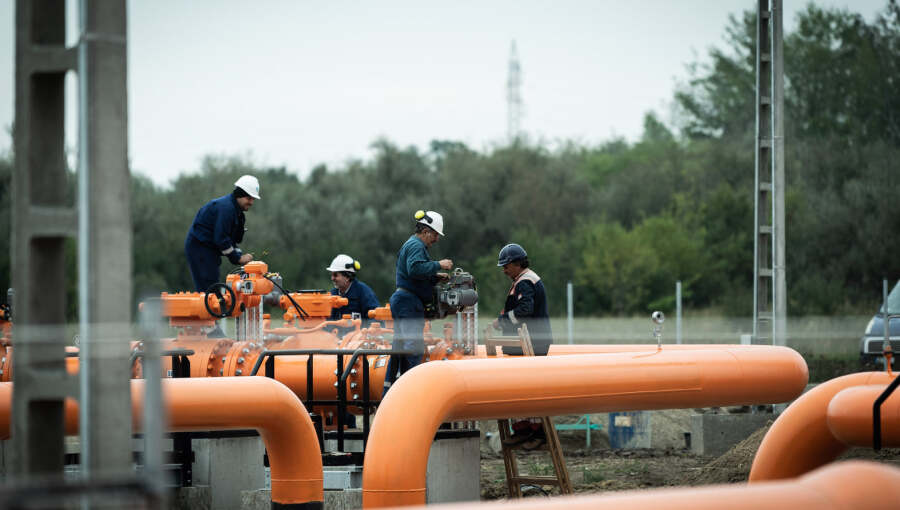Slovak, Hungarian, Austrian and Italian groups sign declaration backing continued gas transit through Ukraine

Slovakia’s biggest gas supplier SPP announced on December 17 it had signed a declaration with other energy companies and industry groups in Slovakia, Hungary, Austria and Italy on supporting continued natural gas transit through Ukraine in 2025.
Russia’s contract to transit gas through Ukraine is due to expire at the end of this year, putting 14bn cubic metres (bcm) per year of gas supply to Europe at risk of ending unless alternative arrangements can be made.
Slovakia says it is conducting "very intense" negotiations to extend the transit agreement. Slovakia would be hit hardest from the halt in gas flow, as it relies on Russian supply through Ukraine to cover roughly 60% of its demand.
Continuing gas transit “is the most advantageous solution not only for gas consumers in Europe, but also for Ukraine itself,” SPP CEO Vojtech Ferencz said in a statement, warning that the region could suffer “significant economic damage” in the event of a disruption.
“We will present the declaration to the President of the European Commission, Ursula von der Leyen, so that she has first-hand information about the threat to energy and economic security in our region," he said.
SPP, which supplies 65% of Slovakia’s gas needs, estimated it would cost the company an extra €150mn ($157mn) to replace supplies delivered through Ukraine because of higher transit fees, while the cost for the entire Slovakian market would come to €220mn. Prices on the market would also increase as a result of the disruption, which could cause gas shortages throughout Europe if the winter is cold, Ferencz said.
He added that a stoppage could weaken the revenues of Slovak transmission system operator Eustream, which earns funds from transiting Russian gas from Ukraine through Slovakia to Austria, and would also lead to “irreversible damage” to Ukraine’s gas infrastructure. Without transit revenue to support the maintenance of Ukraine’s gas infrastructure, the expectation is that Kyiv would decommission parts of it.
Slovakia would struggle to find alternatives to Russian gas through Ukraine because of the fact that neighbouring countries would also be affected and it lacks any direct access to LNG imports.
In addition to SPP and Eustream, the declaration was also signed by Slovakia’s National Union of Employers, Hungary’s national oil and gas company MOL and its power supplier MVM, the Confederation of Hungarian Employers and Industrialists, the Federation of Austrian Industries and Italy’s Gas Intensive Societa Consortile.
Austria also relies on Russian gas through Ukraine to cover the majority of its consumption, with flow volumes so far unaffected by Gazprom’s recent termination of supplies to the country’s largest buyer OMV. But the country is better-placed to access LNG and Norwegian gas imported via Germany and other routes. Hungary is also a significant customer for Russian gas, but imports the majority of this supply via the TurkStream pipeline that runs to Turkey.


Follow us online